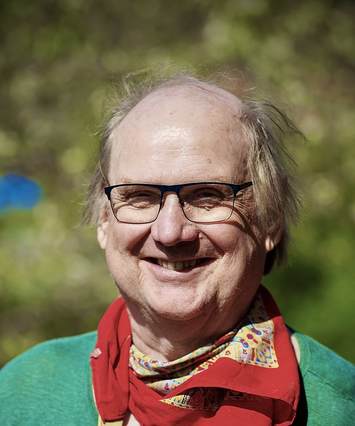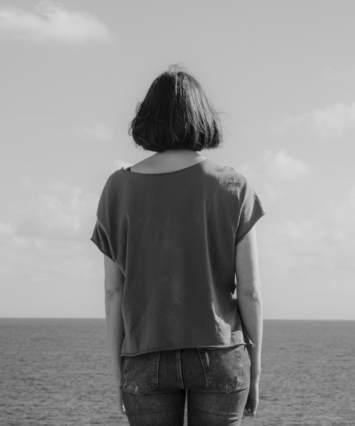My wish for this week is that we will be refreshed, inspired, challenged and encouraged,' said Gunnar Söderlund of Renewal Arts, the organisers of a conference on 'The Road to Renewal' at the Initiatives of Change centre in Caux.
All the continents were represented and many faiths and traditions. Some of us were professional artists, others considered ourselves amateurs, but all of us were interested in life and the arts.
The conference offered a whole menu of surprises for its participants who had to make difficult choices and slept short nights. Every day started at 7.30 am with five choices of meditation and went on until 1 am with a late night film festival after a diverse evening programme. The early morning sessions were led by an Anglican bishop, a French Dominican, and by practitioners of different forms of meditation.
Nine interactive workshops provided platforms for deep discussions and practical application. The participants could choose between drama, creative writing, choral singing, musical theatre, communications and film-making, flowers and cards, 'the voice behind the mask', composition and improvisation in jazz and contemporary music, and a study-tour of Mountain House's architecture and its contents.
Then a series of plenaries took us on a journey through artistic renewal and its inner, spiritual role in our lives. From the 'first steps on the road' we travelled all the way to 'the road ahead', stopping on our way at 'artistic renewal as a challenge to the way things are', 'as a way of living', 'as a doorway to God' and 'as a power to reconcile'.
Special lunches with six artists were arranged each day so that the participants would have the chance to meet them less formally. Over tea there were book signings and sculpture demonstrations which were followed by an 'arts a la carte' programme with 17 presentations to choose from.
As the conference progressed more items were added. For instance, several participants from a dialogue between Muslims and non-Muslims, which took place alongside the conference, contributed to 'arts a la carte' with Islamic architecture and music. The latter turned into a jam session of popular Arab music.
Famous Polish film-maker Krzysztof Zanussi and journalist Marek Ratajczak put forward their ideas for a major cultural festival in Poland next year. Two Russian film-makers, Vladimir Nesterov and Alexander Solovyev, presented their work, followed by deep discussions. Czech senator Jara Moserova-Davidova introduced a new film based on her play about the Velvet Revolution in Prague, Letter to Wollongong.
A 'youth focus' ran through the week, bringing together people aged between 15 and 23. At the last session, British politician Ann Widdecombe led a lively discussion on apathy and involvement, with a strong challenge to participate in the democratic process.
The Fitzwilliam String Quartet - by now a regular feature in Caux - gave a classical concert, presented a BBC film about Shostakovich and introduced participants to 'new ways of hearing music'.
They also helped German composer Uwe Steinmetz in the première of his highly original composition based on the poems of German theologian and martyr Dietrich Bonhoeffer. Performed by jazz ensemble, string quartet and narrator, it brought the audience into the cell where Bonhoeffer awaited execution to witness 'his struggles with evil, with justice and with God'.
The renowned Egyptian artist and calligrapher Ahmed Moustafa gave a Muslim perspective on the links between art, science, geometry and faith, in his Caux Lecture on 'Symbols and Treasures - towards a common ground'. The conference saw the world première of a 1,000 cube installation, which arrived in crates and was assembled in the Great Hall. At the closing session, as a symbolic gesture that deeply moved the artist, the participants carried the cubes back to the scene-dock for packing to go to an exhibition in London. After London the installation will ultimately go to the St Mungo Museum of Religions in Glasgow.
Liverpool sculptor Stephen Broadbent talked of his vision of art as part of a dialogue between the artist and the community, as opposed to 'public art' dropped on the community by municipal authorities. He also spoke of his work on creating a triangle of reconciliation linking Liverpool, Benin and Richmond, Virginia, to heal the terrible wounds of the slave trade.
At the final meeting, the air was full of emotion with moving speeches of gratitude and farewell. One of the guest artists, who introduced 'Art from Russia' in 'arts a la carte', was so inspired by the conference and the people she met that she presented one of her paintings to the organizers.
Söderlund's wish came true: participants left 'refreshed, inspired, challenged and encouraged' as a forest of hands went up to prove. When those who had contributed to this event were asked to rise, half of the hall stood up.
English




